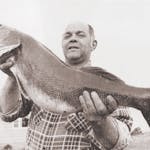 See
more of the story
See
more of the story
Dennis Anderson
NORTHFIELD, MINN. – Not far from this picturesque southeast Minnesota college town, Jerry and Audrey Wicklund are conducting a natural-habitat experiment on a farm that has been in the family since the late 1940s.
Surrounded by agriculture operations large and small whose crops include corn, soybeans and sod grass, the Wicklunds' farm is by comparison a wildlife paradise featuring acres and acres of prairies, undisturbed woods and fully 110 wood duck houses, most already laden this spring with eggs.
Jerry Wicklund, 78, was 7 years old when his parents bought 320 acres in Dakota County's Waterford Township. This was a big move from the country place outside of Faribault where Jerry was born, and the equally small rural home the family owned near the tiny town of Dundas.
"I'm one of eight kids, and the youngest of five boys," Jerry said. "My parents wanted us to live in the country because they were afraid if we lived in town, we'd get mixed up with the wrong crowd."
On the original 320-acre farm, the elder Wicklunds planted oats, wheat, corn and alfalfa for their cattle and dairy cows. Often they would cultivate their fields at night, using horses, and would hang lanterns between the animals' harnesses to ensure the planted rows were straight.
The family had 10 mouths to feed, and the margin for error, come harvest time, was slim.
But his parents, Jerry said, were not just fixated on the bottom line. Maintaining the health of their land, he said, was as important as crop yields and livestock production.
"I don't know where my mom and dad picked it up, but they cared a lot about habitat for animals, and particularly about erosion, which was a big thing back then," Jerry said.
Those concerns remain a family priority.
Consider wood duck houses, which hang everywhere on the 165 acres that make up the Wicklund farm today. Each box is cleaned out in fall and outfitted with fresh shavings in preparation for the springtime return of hen woodies.
Most of the boxes are utilized, as a spot check verified on a recent day.
"We're longtime members of the Southern Dakota County Sportsmen's Club, whose members built the wood duck houses over the years," Jerry said.
Centerpiece of the Wicklund place is a sea of prairie grasses. Planted about 18 years ago, and being replanted now, piece by piece, the grasses are a haven for pheasants, deer, turkeys and bees (three hives are kept on the property). The grasses also help hold the soil together, providing a place for, among other plants, countless black-eyed susans — which attract butterflies, bees and other pollinators.
Tree planting also is a Wicklund specialty.
"My dad was a tree planter," Jerry said. "When I was a kid, trees cost him 1 penny apiece from the county. Now they run about $1.25 for a seedling. Our goal is to have 1,000 oak trees on the property by 2019. Oaks and their acorns are good for turkeys, deer, wood ducks and other wildlife."
Not far away, Chub Creek, which divides the Wicklund property, overflowed its banks. Swollen by a recent rain that measured only 1½ inches, the creek carried water downstream dumped into it by thousands of miles of farm-field drain tiles.
"That water is carrying a lot of fertilizer and chemicals," Jerry said.
A fair assumption would be that Jerry hunts, given how hard he works to increase the wildlife carrying capacity of the property he and Audrey, also 78, own.
In fact neither hunts.
They do, however, make their land available to a veterans group, so that men and women who have served in the military — as Jerry did for eight years, in the Marines — have a place to hunt.
Also, in conjunction with the Dakota County Chapter of the National Wild Turkey Federation, the Wicklunds host a youth turkey hunt each spring.
"The kids have to pass their hunter safety program first," Jerry said. "And they have to be accompanied by a parent or guardian or mentor. After the hunt, we gather in our yard for photos and to tell stories. It's a learning experience for everyone. As a result, many of the kids and their parents become active in habitat development."
Rewarding as it is to see a deer emerge from a woodlot at sunset, or pheasants rise from prairie grass, the Wicklunds also are passionate about smaller critters, particularly butterflies — especially monarchs, whose numbers have declined significantly continentwide, because of habitat loss.
In response, the Wicklunds harvest milkweed pods and dry them in winter before spreading their seeds in the Northfield area. Members of that city's Bethel Lutheran Church aid the cause.
"Milkweeds are critical to the survival of monarchs," Jerry said.
As he spoke, he reached into a large bucket of dried milkweed pods. Each held about 100 seeds ready for spreading.
"We figure we've distributed about 250,000 milkweed seeds so far," Jerry said.
And more — and more — are on the way.
Dennis Anderson • danderson@startribune.com






